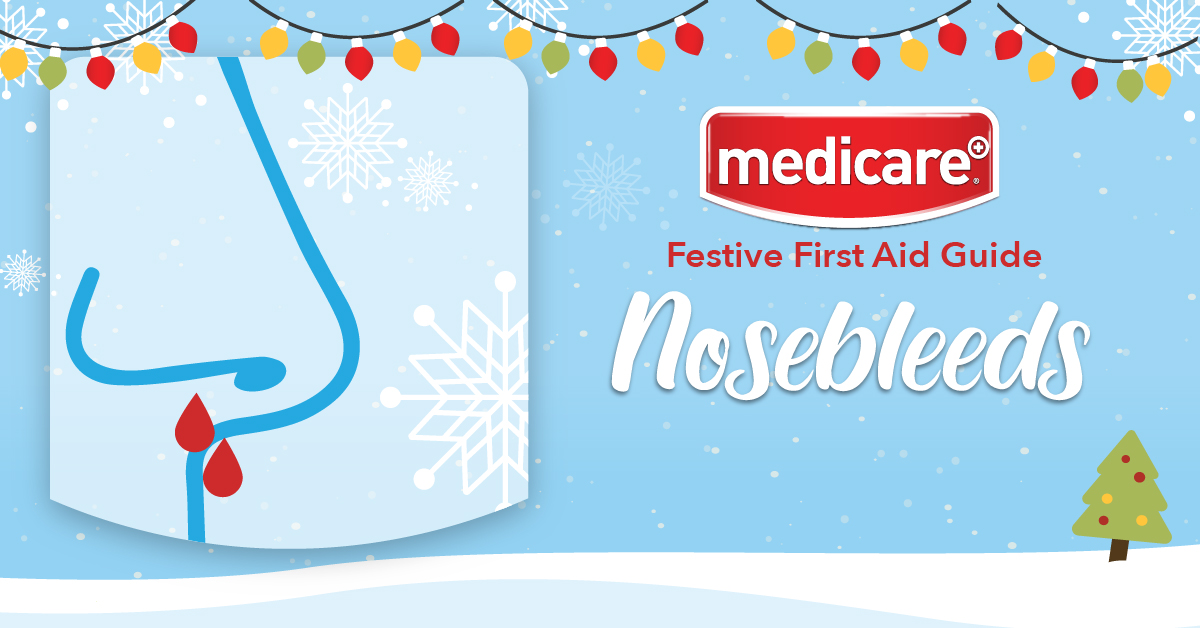Headlines
- Gentle Daily Ear Care with Medicare Ear Spray
- Breathe Easy with Medicare Nasal Spray
- Fleming Medical Renews Support for Irish Heart Foundation’s “Before Damage is Done” Campaign with over €25K Donation
- First Response for Minor Burns: Why MD508 Medicare Burn Spray Belongs in Every Medicine Cabinet
- Step Smart: Introducing the New Medicare® Footcare Range
The 12 Injuries of Christmas - Nosebleeds
02 December 2019

Nosebleeds are usually not serious and can be simply treated at home. They are typically caused when the inside of your nose is damaged blowing your nose too hard or even due to changes in temperature.
There are certain instances where a nosebleed will need professional medical attention, which is when they occur from deeper inside the nose. Examples of this include when the nose has been broken when it is caused by high blood pressure or by taking a specific type of medication or by conditions that affect the blood vessels or how the blood clots.
There are certain people who are more prone to experiencing nosebleeds:
- Children (they usually grow out of them by the age of 11)
- Elderly people
- Pregnant women
How to treat a nosebleed
- Make sure that you are sitting or standing upright and not lying down.
- Pinch your nose just above the nostrils for around 10-15 minutes.
- Lean forward and breathe through your mouth.
- Have a cloth or bowl ready for any drips or dribbles of blood.
- Place a Medicare Instant ice pack at the top of your nose to reduce any swelling that may have been caused.
- After 10-15 minutes, allow the casualty to stop pinching their nose.
However, if the bleeding has not stopped, then the patient must pinch the soft part of their nose for a further 10 minutes. If the nosebleed continues after 30 minutes, the casualty must be taken to the hospital to receive medical attention.

 Fleming Medical UK
Fleming Medical UK
